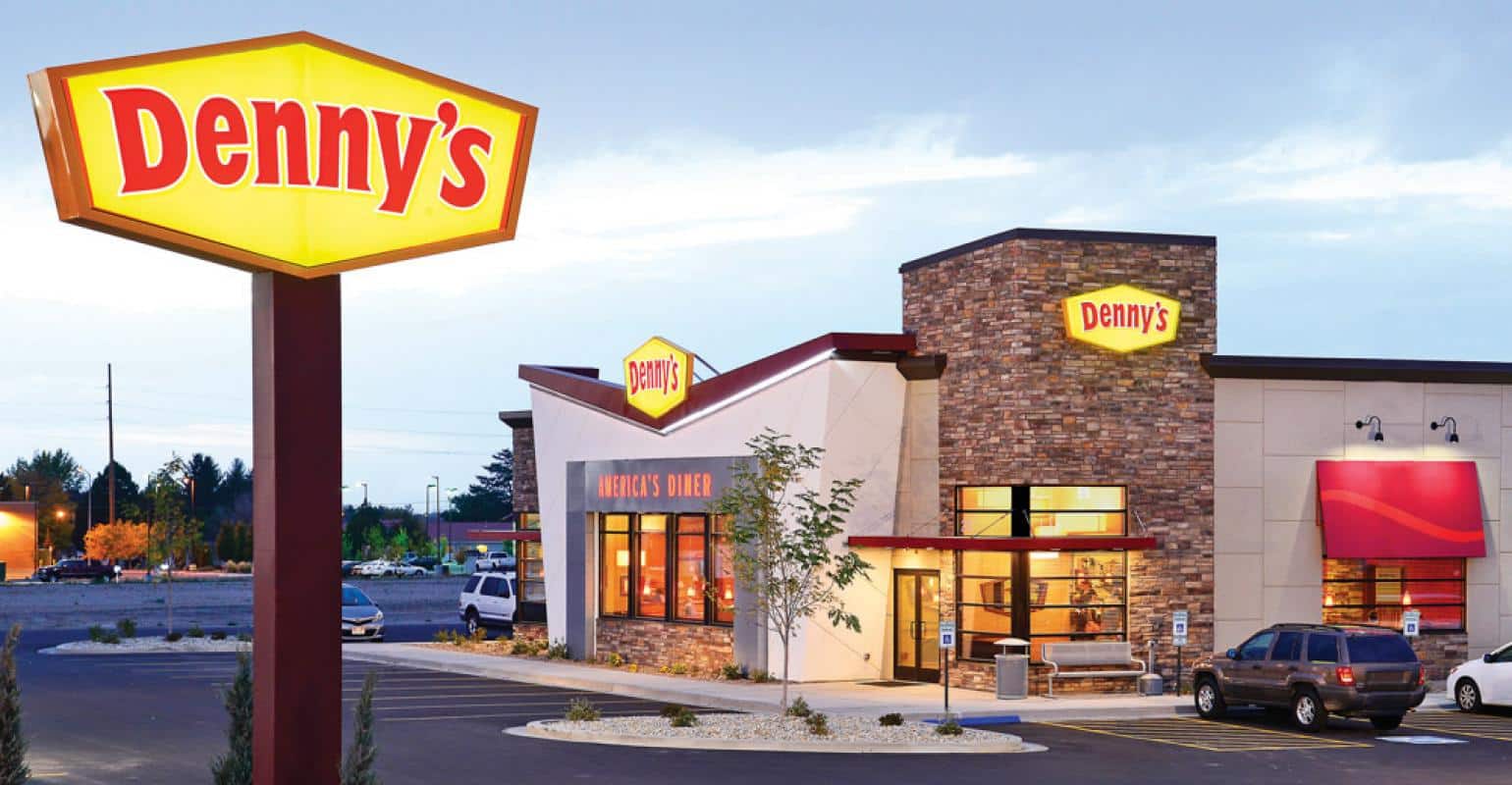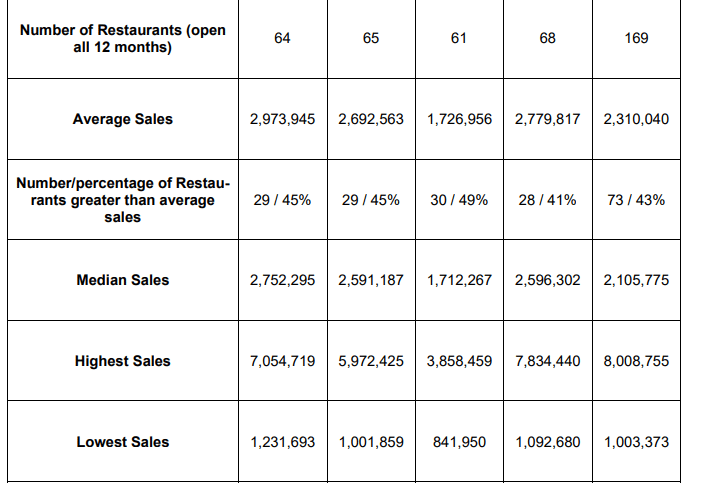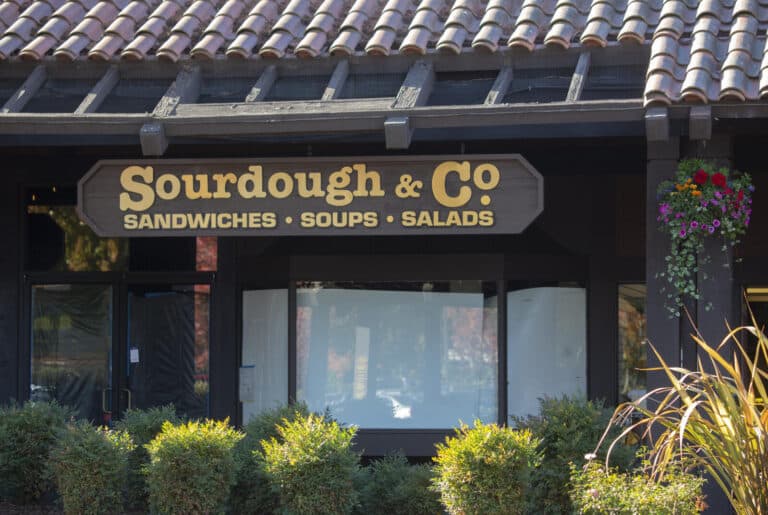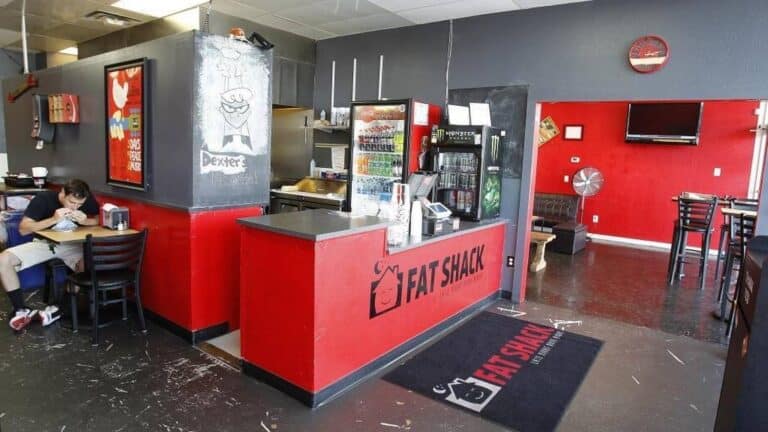Denny’s Franchise FDD, Profits & Costs (2025)

Denny’s, known for its iconic diner-style eateries, has been a staple in the American restaurant scene since its rebranding from Denny’s Coffee Shops in 1961. Headquartered in Spartanburg, South Carolina, since 1991, Denny’s has grown significantly from its humble beginnings.
A key milestone was the introduction of the Grand Slam® in 1977, which became synonymous with the brand. Denny’s differentiates itself with a focus on diversity and community engagement, as highlighted by its top rankings in diversity by Fortune Magazine in 2000 and Black Enterprise magazine in 2006.
The franchise is also recognized for its innovation, with the launch of Denny’s On Demand in 2017 and virtual brands in 2021, further enhancing its service offerings.
Initial Investment
How much does it cost to start a Denny’s franchise? It costs on average between $305,000 – $2,327,000 to start a Denny’s franchised restaurant.
This includes costs for construction, equipment, inventory, and initial operating expenses. The exact amount depends on various factors, including the type of restaurant you choose, the location, and whether the franchisee chooses to lease or purchase the property. Indeed, Denny’s offers 3 types of franchises:
| Facility Type | Initial Investment Range |
|---|---|
| Denny’s Heritage 2.0 Facility | $1,428,425 to $2,326,575 |
| Nontraditional Denny’s | $305,000 to $826,000 |
| Denny’s within a Travel Center | $1,003,415 to $1,681,575 |
We are summarizing below the main costs associated with opening a Denny’s Heritage 2.0 Facility franchised restaurant. For more information on the costs required to start an Denny’s franchise, refer to the Franchise Disclosure Document (Item 7).
| Type of Expenditure | Amount |
|---|---|
| Initial Franchise Fee | $30,000 |
| Site Improvements | $0 – $300,000 |
| Building and Improvements | $800,000 – $1,000,000 |
| Architectural Design and Engineering | $30,000 – $60,000 |
| Equipment, Fixtures and Furnishings | $350,000 – $450,000 |
| Signs | $40,000 – $90,000 |
| Standard Enterprise Technology Platform | $25,000 – $40,000 |
| Opening Inventory and Supplies | $20,000 – $30,000 |
| Opening Advertising | $3,000 – $5,000 |
| Opening Menus | $340 – $500 |
| Opening Gift Cards | $74.75 |
| New Restaurant Opening Training Team | $0 – $36,000 |
| Security Deposits | $10,000 – $15,000 |
| Insurance | $15,000 – $20,000 |
| Soft Costs (Permits, Survey, Inspections) | $5,000 – $100,000 |
| Additional Funds – 3 months | $100,000 – $150,000 |
| Total (exclusive of land) | $1,428,424 – $2,326,574 |
Average Revenue (AUV)
How much revenue can you make with a Denny’s franchise? A Denny’s franchised restaurant makes on average $1,667,000 in revenue (AUV) per year.
Here is the extract from the Franchise Disclosure Document:

This compares to $1,812,000 yearly revenue for similar breakfast franchises. Below are 10 Denny’s competitors as a comparison:

Download the Franchise Disclosure Document
Frequently Asked Questions
How many Denny’s locations are there?
As of the latest data, there are 1,541 Denny’s restaurants globally. Out of these, 1,477 are franchised and licensed, while 64 are company-owned. Additionally, Denny’s Corporation also operates the Keke’s brand, which includes 62 restaurants—51 franchised and 11 company-operated.
What is the total investment required to open a Denny’s franchise?
The total investment required to open a Denny’s franchise ranges from $305,000 to $2,327,000.
What are the ongoing fees for a Denny’s franchise?
Denny’s franchisees are required to pay a royalty fee of approximately 4.5-7% of gross sales. Additionally, there is a marketing and advertising fee that generally ranges from 3-4% of gross sales.
These fees help fund both national advertising campaigns and local marketing efforts to support brand recognition and drive customer traffic. The exact fee structure may vary based on the agreement and location.
What are the financial requirements to become a Denny’s franchisee?
To become a Denny’s franchisee, the financial requirements typically include a minimum net worth of around $500,000 to $1 million. Additionally, potential franchisees are expected to have liquid capital of at least $250,000.
These financial thresholds ensure that the franchisee has the resources necessary for the investment, operational costs, and to support the initial establishment of the restaurant. Specific requirements may vary based on location and individual agreements.
How much can a Denny’s franchise owner expect to earn?
The average gross sales for a Denny’s franchise are approximately $1.67 million per location. Assuming a 15% operating profit margin, $1.67 million yearly revenue can result in $250,500 EBITDA annually.
Who owns Denny’s?
Denny’s is owned by Denny’s Corporation, a publicly traded company listed on the NASDAQ under the symbol “DENN.” The corporation oversees the Denny’s brand, including its franchised and company-owned restaurants.
Disclaimer
Disclaimer: This content has been made for informational and educational purposes only. We do not make any representation or warranties with respect to the accuracy, applicability, fitness, or completeness of the information presented in the article. You should not construe any such information or other material as legal, tax, investment, financial, or other professional advice. Nothing contained in this article constitutes a solicitation, recommendation, endorsement, advertisement, or offer to buy or sell any franchises, securities, or other financial instruments in this or in any other jurisdiction in which such solicitation or offer would be unlawful under the franchise and/or securities laws of such jurisdiction.
All content in this article is information of a general nature and does not address the detailed circumstances of any particular individual or entity. Nothing in the article constitutes professional and/or financial and/or legal advice, nor does any information in the article constitute a comprehensive or complete statement of the matters discussed or the law relating thereto. You alone assume the sole responsibility of evaluating the merits and risks associated with the use of any information or other content in this article before making any decisions based on such information or other content.




